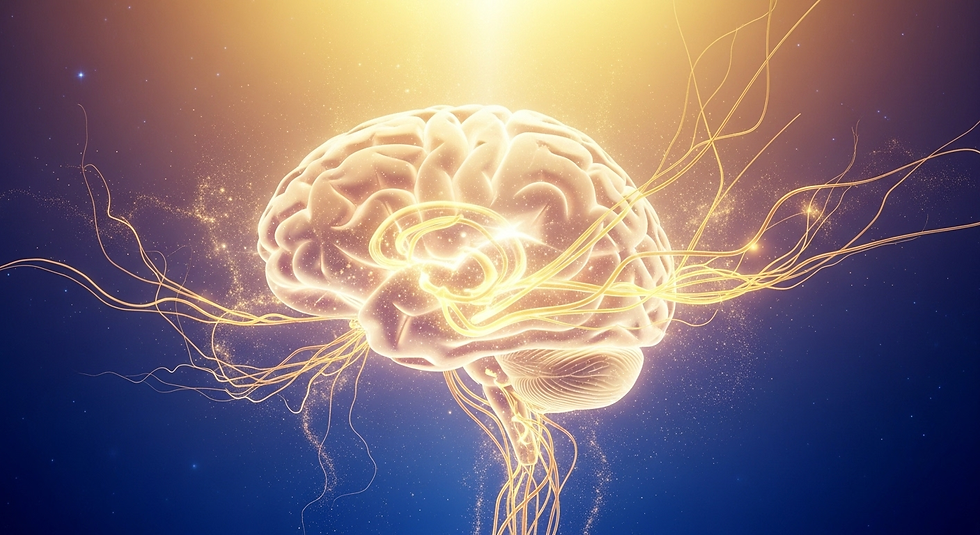Rewire Your Brain for Positivity: 3 Neuroscience-Hacks
- areej
- Aug 11, 2025
- 2 min read

What if your happiness, health, and even life expectancy were shaped not by luck, but by the way your brain processes the world? Neuroscience is proving exactly that. Research now shows that positivity isn’t just a mindset, it’s a biological advantage that rewires your brain, strengthens your immune system, and even helps you connect more deeply with others.
Positive people live longer because their brains produce higher levels of serotonin and dopamine in the prefrontal cortex, the part of the brain responsible for decision-making, focus, and emotional regulation. They also have lower activity in the amygdala, the brain’s fear center, which means they’re less anxious about the future and better equipped to handle challenges.
But here’s something fascinating: when scientists scanned the brains of positive people, they found that the neural patterns in their medial prefrontal cortex were strikingly similar. In other words, positive thinkers are literally “on the same wavelength.” Negative thinkers, on the other hand, had brain patterns that were unique and inconsistent, echoing Leo Tolstoy’s famous line from Anna Karenina: “Happy families are all alike, but every unhappy family is unhappy in its own way.”
Positivity Is Not Pretending Everything Is Fine
A common misconception is that positive people are just reframing bad situations or wearing rose-colored glasses. That’s not true. Instead, they’ve mastered the ability to view negative events from a more abstract perspective, seeing them as part of a bigger picture rather than attaching overwhelming emotional weight to them. This mental distance allows them to recover faster and keep moving forward.
Why It Matters
This mental skill has real-world consequences. Studies show that positive people tend to:
Hold higher social status
Have more friendships and stronger networks
Be more liked and perceived as more attractive Positivity makes you magnetic, both socially and professionally.
Three Neuroscience Hacks to Train Your Brain for Positivity
Visualize Your Best Future, As If It’s Happening Now
Your brain reacts to vivid mental imagery as if it were real. Spend a few minutes each day imagining your goals as if they’re already accomplished. Feel the excitement in your gut. Let your senses and emotions fully experience the scene.
Practice Daily Gratitude
Before you go to bed, write down three things you’re grateful for. A Harvard study found that people who regularly practice gratitude live longer, healthier lives. This small ritual shifts your focus from what’s lacking to what’s abundant.
Pause Before Reacting
When someone triggers you, resist the urge to attack or defend. Instead, pause and ask yourself: “What insecurity is being touched here?” This self-awareness helps you respond with clarity instead of emotion.
The Takeaway
Positivity isn’t just a personality trait, it’s a learnable skill that rewires your brain and transforms your life. By visualizing your future, practicing gratitude, and pausing before reacting, you can train your brain to work for you, not against you.
Be positive, encourage others, and watch how your brain, and your life, begin to change.
.png)











Comments